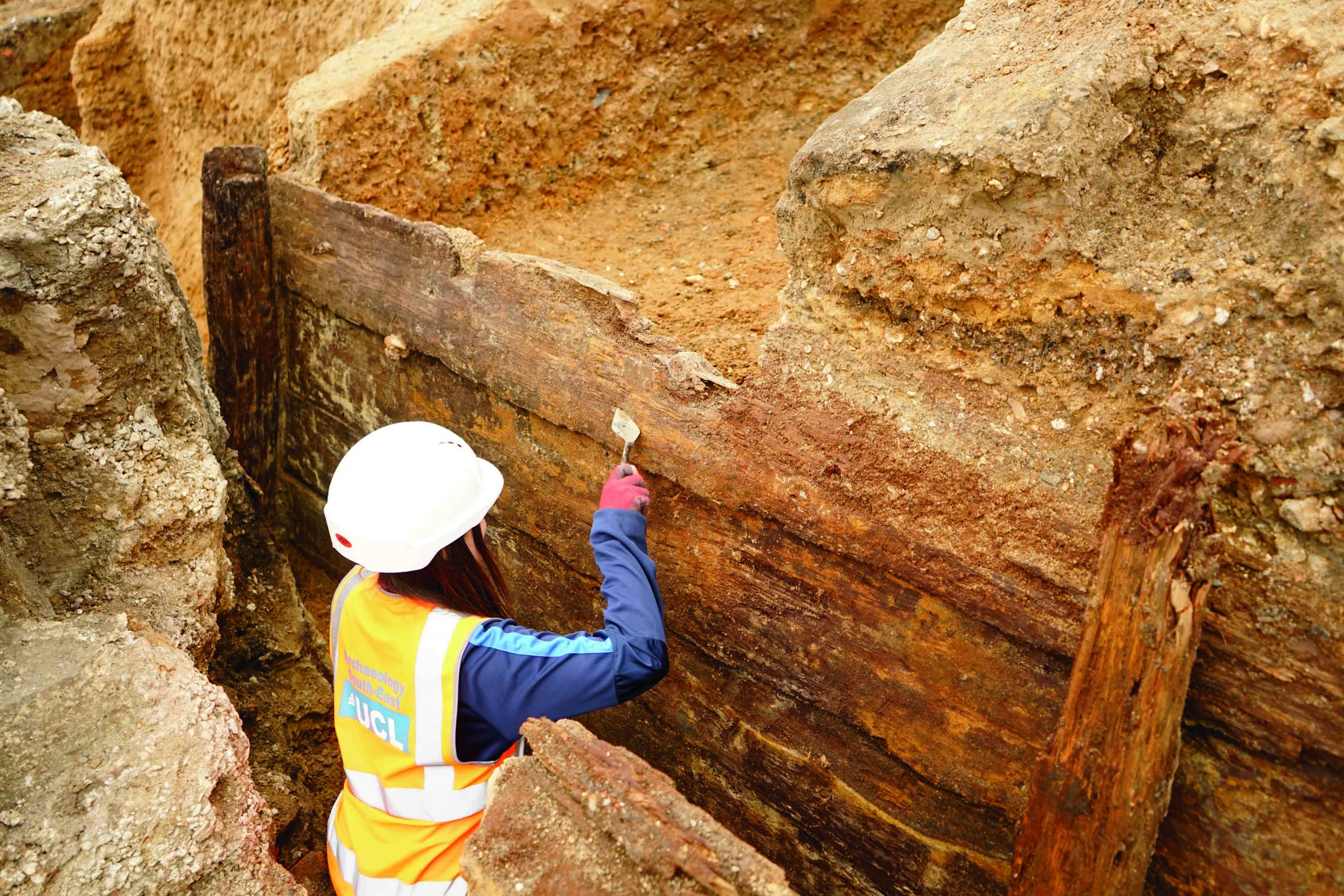SOFIA, BULGARIA—Archaeology in Bulgaria reports that fragments of a 2,500-year-old terracotta relief depicting Greek warriors wearing helmets and carrying spears have been discovered in the St. Cyricus Island area of the town of Sozopol, which is now a peninsula in the Black Sea. The island was home to the ancient Greek colony of Apollonia Pontica, and the Colossus of Apollonia, a 42-foot-tall bronze statue of the Greek god Apollo. Krastina Panayotova and Margarit Damyanov of Bulgaria’s National Institute of Archaeology and Museum, and Daniela Stoyanova of Sofia University, unearthed the sculpture fragments at the site of two temples dedicated to Apollo Iatros. The older temple, covered by a layer of limestone rubble, has been dated to the Late Archaic period, while the other has been dated to the Early Classical period. Other fragments thought to be part of the same sculpture were discovered at the site in 2018 and 2019. Fragments of fragrance vessels, pottery, and two bronze arrow tips were also recovered from the older temple layer. A coin and fragments of a two-handed wine cup were found along with the relief fragments in the upper layer. To read about a first-century A.D. marble gravestone recovered at a Roman settlement in northwestern Bulgaria, "A Dutiful Roman Soldier."
Ancient Greek Terracotta Relief Fragments Found in Bulgaria
News March 29, 2021
SHARE:
Recommended Articles
Digs & Discoveries March/April 2021
A Dutiful Roman Soldier
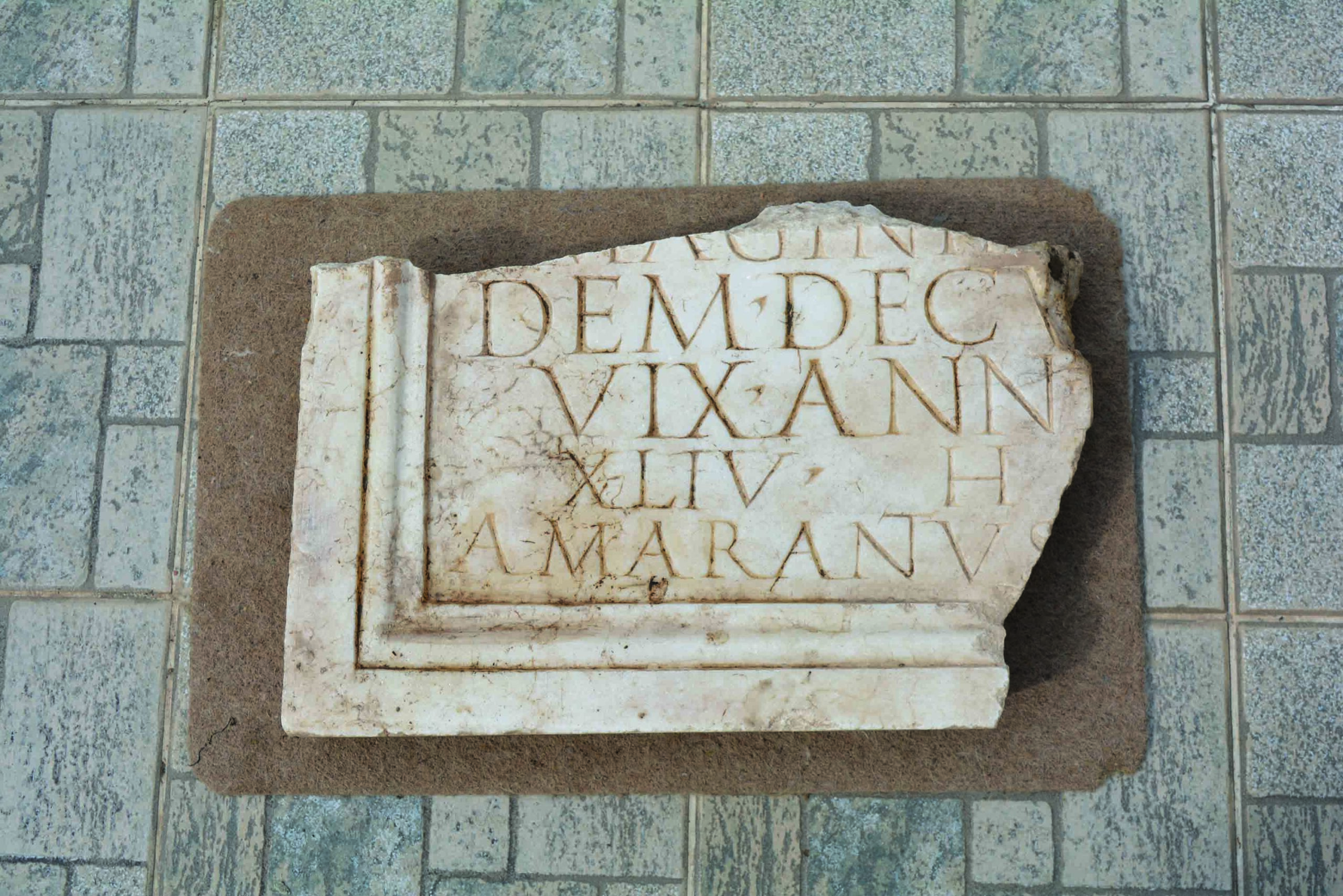
(Valeri Stoichkov)
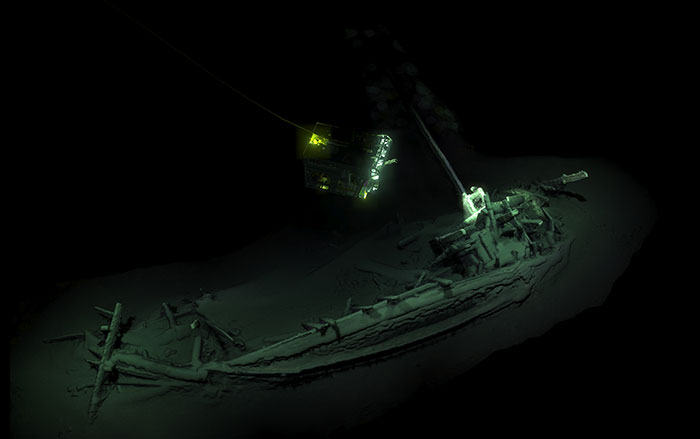
(Courtesy Black Sea Maritime Archaeological Project)
Digs & Discoveries July/August 2018
Mirror, Mirror
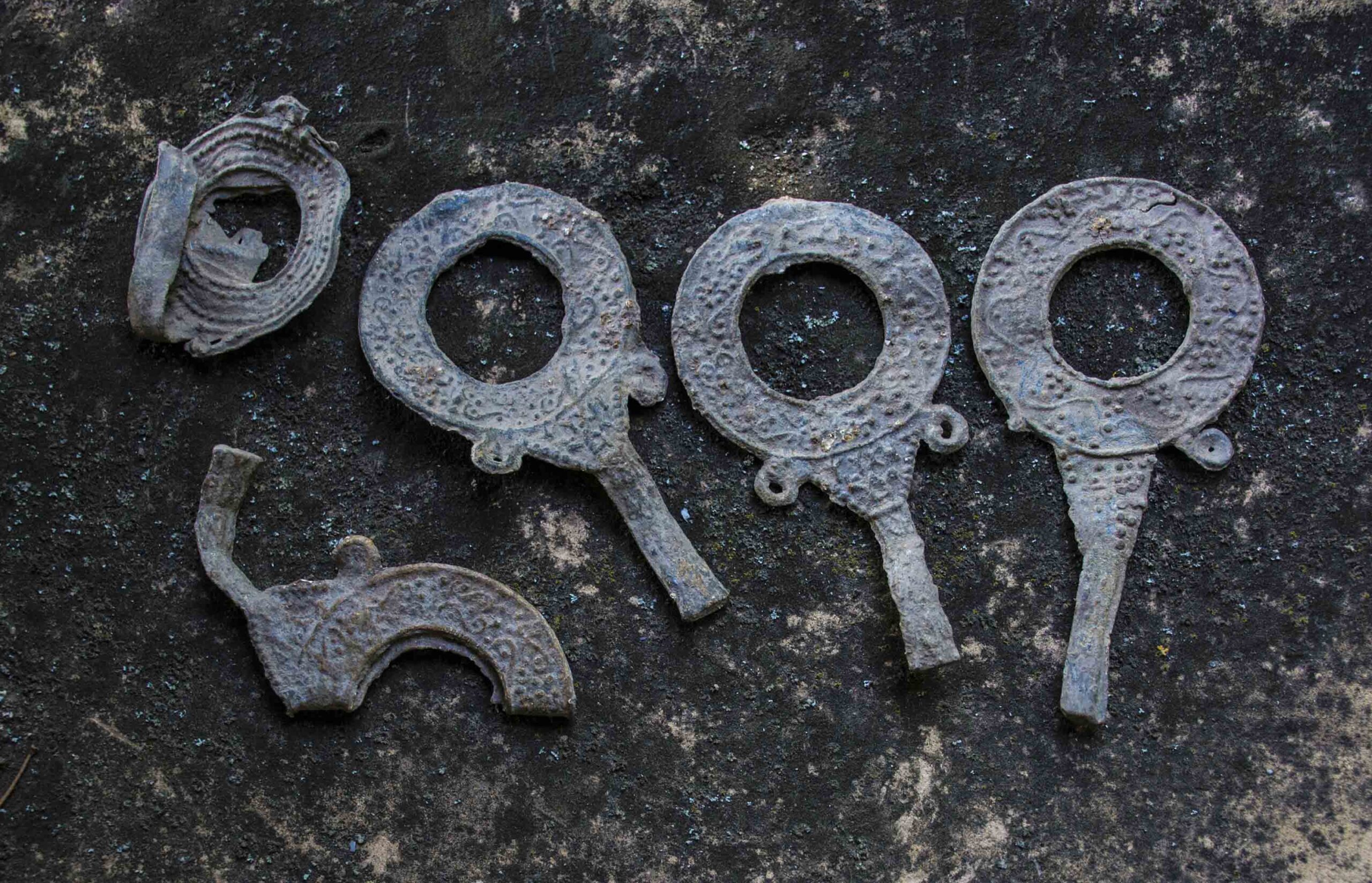
(Bulphoto Agency)
Digs & Discoveries November/December 2017
Iconic Discovery
(Courtesy Old Royal Naval College)
-
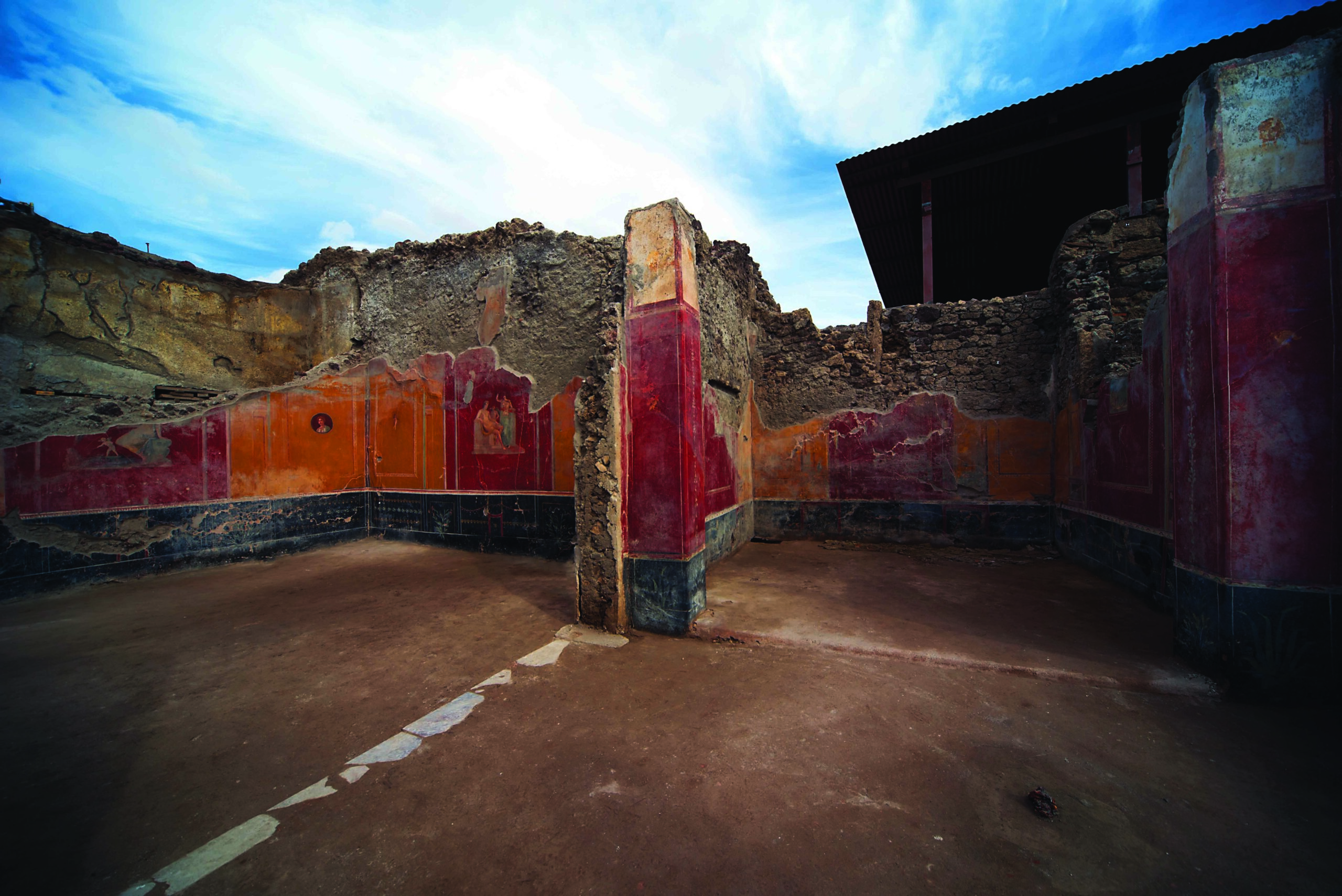 (Pasquale Sorrentino)
(Pasquale Sorrentino) -
Features January/February 2021
Return to the River
Members of Virginia’s Rappahannock tribe are at work with archaeologists to document the landscape they call home
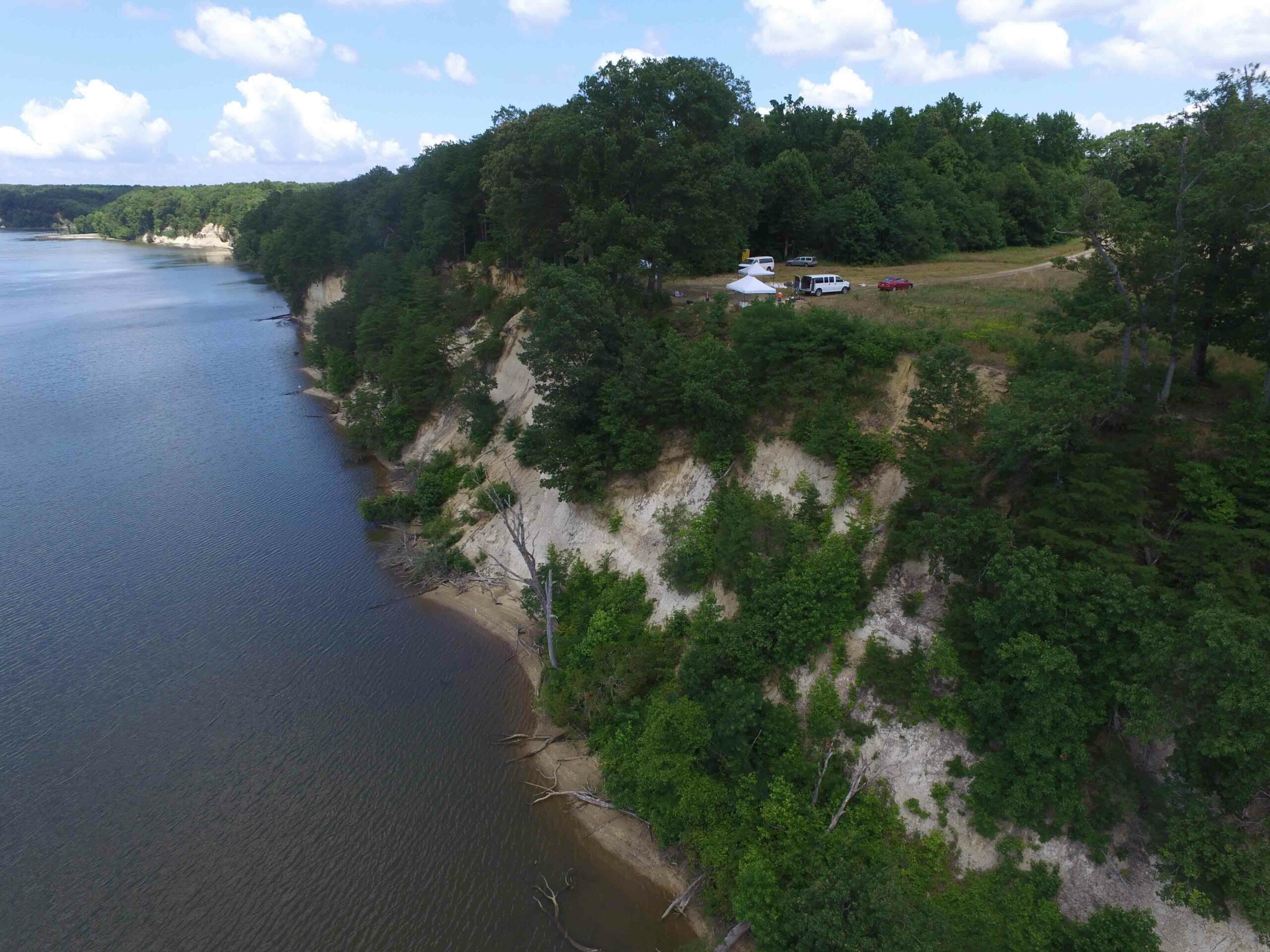 (Courtesy Julia King)
(Courtesy Julia King) -
Letter from Woodhenge January/February 2021
Stonehenge's Continental Cousin
A 4,000-year-old ringed sanctuary reveals a German village’s surprising connections with Britain
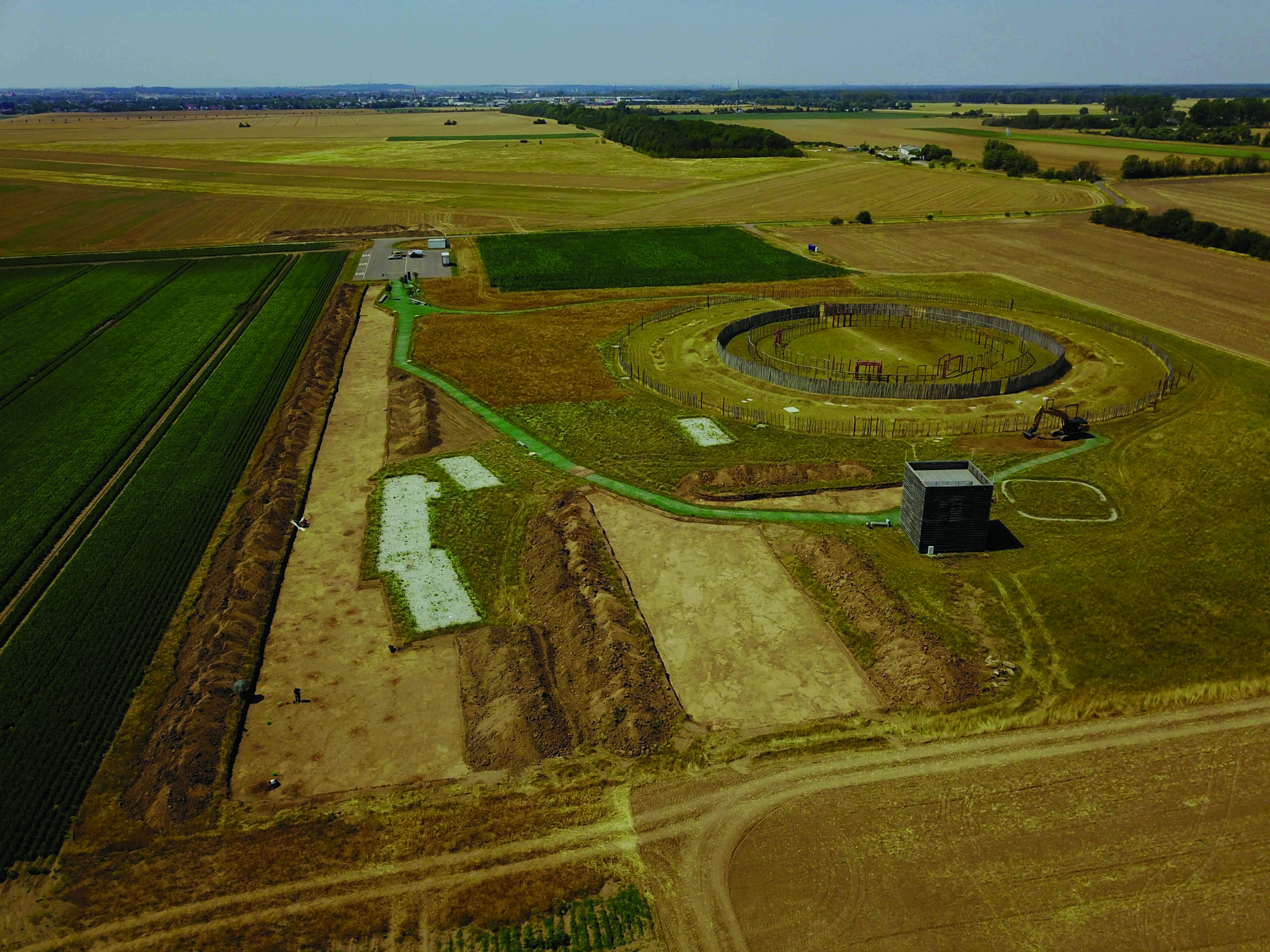 (Photo Matthias Zirn)
(Photo Matthias Zirn) -
Artifacts January/February 2021
Inca Box with Votive Offerings
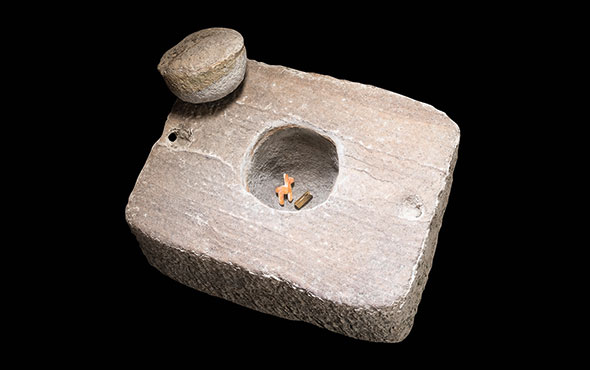 (Courtesy Teddy Seguin/Université Libre de Bruxelles)
(Courtesy Teddy Seguin/Université Libre de Bruxelles)


